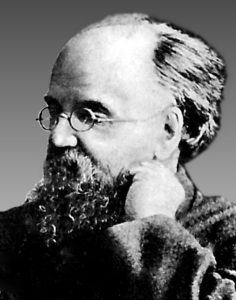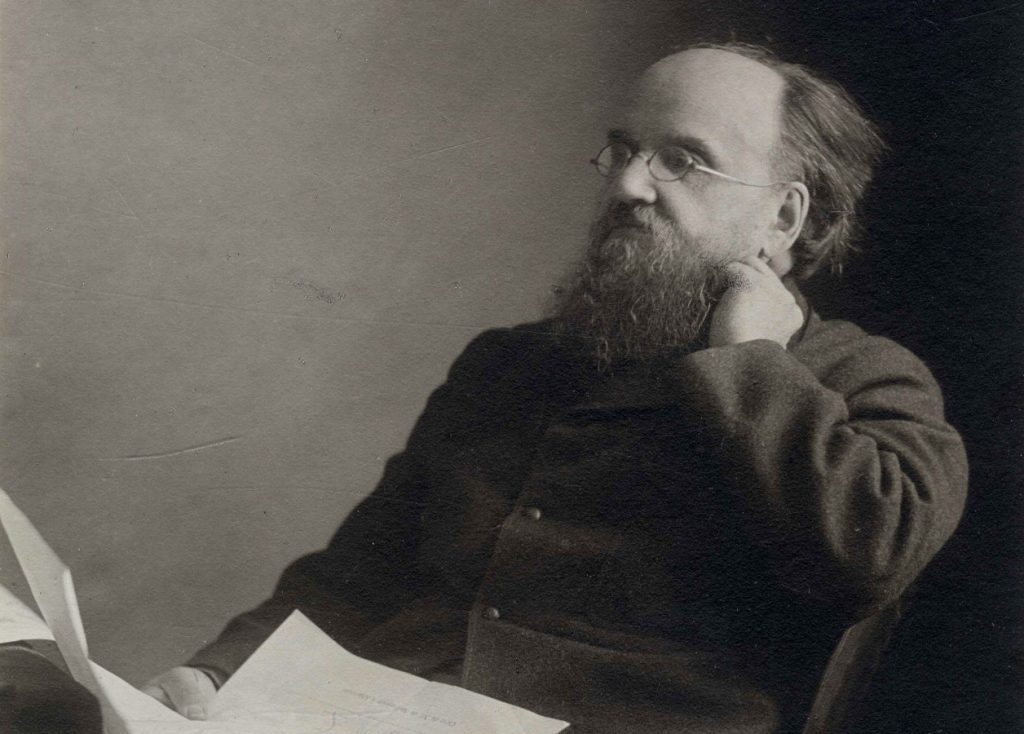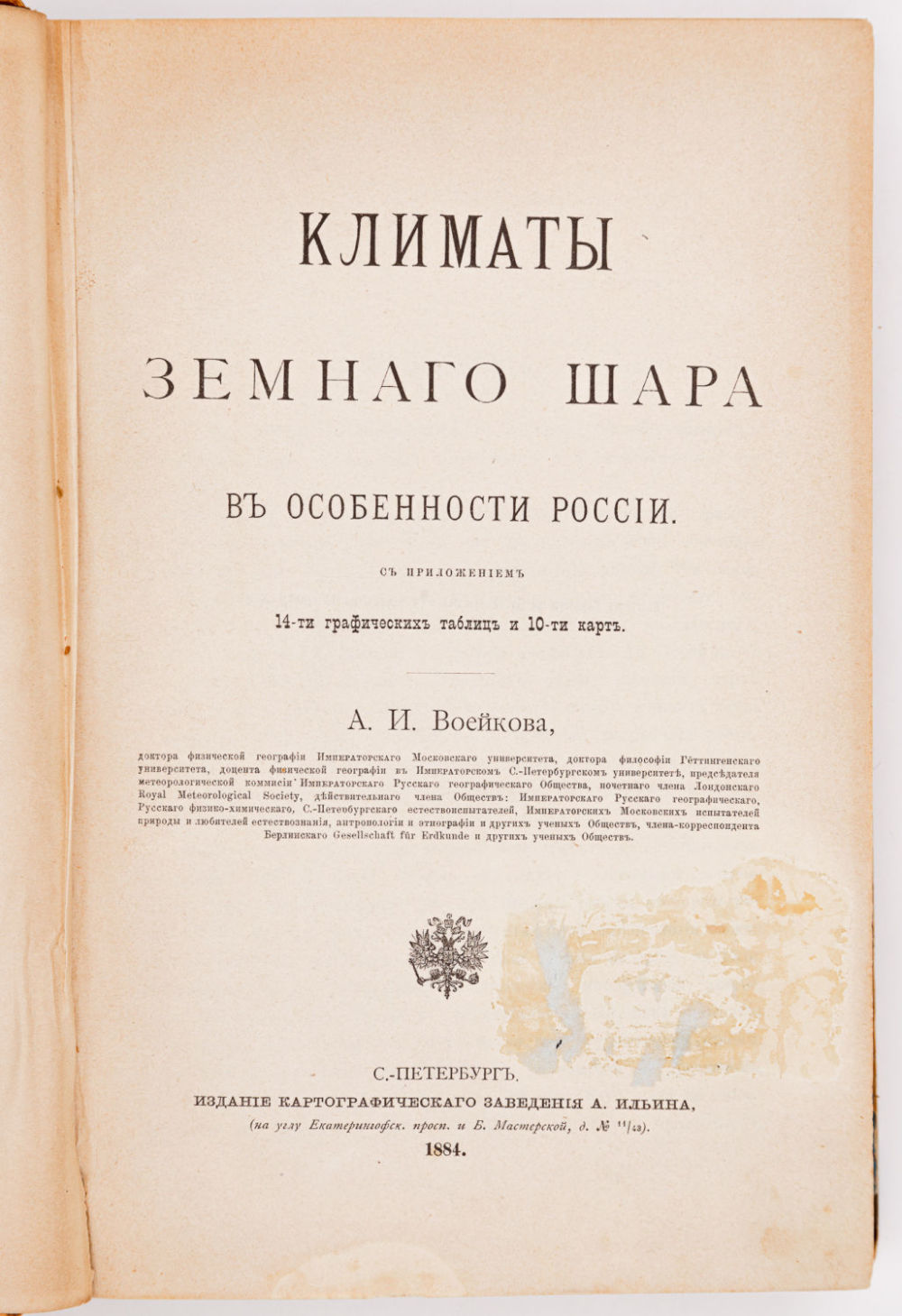Alexander Ivanovich
Voeikov
1860-1916

The achievements of Russian researchers, scientists and geographers are inestimable. Many streets in Moscow are named after them, including Voeikov Street.
Alexander Ivanovich Voeikov (1860-1916) was a Russian meteorologist, climatologist and geographer, the creator of agricultural meteorology. He was born in Moscow on May 20, 1842. In 1860 A.I. Voeikov entered the Faculty of Physics and Mathematics of St. Petersburg University, but the following year he went abroad, where he attended courses at the Universities of Berlin, Heidelberg and Göttingen; by the latter he was awarded the degree of Doctor of Philosophy (1865). From 1866 he was a member of the Imperial Russian Geographical Society, becoming an honorary member in 1908. In 1868 and 1870 he explored the eastern Caucasus (Dagestan, Baku and Lenkoran). In 1872 he travelled through Galicia, Bukovina, Romania, Hungary and Transylvania. In February, 1873, A.I. Voeikov came to New York and until October of the same year he made a large trip around the United States and Canada. He collected a large number of meteorological observations, which allowed him to discover the similarity between the climatic conditions of Colorado and Western Siberia. The following year Voeikov travelled through Yucatan, Mexico and South America. He also travelled to Hindustan, Java and Japan. In 1891 A.I. Voyeikov travelled through the Belarusian Polesie. As a result, he wrote the works “Climate of Polesie” (1891) and “Pinsk Polesie and the results of its drainage” (1893). In 1873-1898, large hydro-meliorative works were carried out to drain the marshes on the territory of Belarus by the western expedition headed by I.I. Zhilinskiy. This drainage project had no analogues in the world and was highly appreciated in Russia and abroad (gold medal at the Paris World Exhibition in 1878). The first project of draining the Polesskaya lowland marshes by means of regulating the existing and creating new channels was developed. During the expedition, more than 4,000 km of drainage and forest roads were dug, and more than 600,000 hectares of meadows and forests were improved. In 1884 he received the highest award of the Russian Geographical Society – the Konstantinovsky Medal for his work on climatology, based on the data collected during his numerous journeys to different parts of the world. Among the many works of the scientist, the fundamental work “Climates of the Globe, especially Russia” (1884) stands out. He is considered one of the founders of climatology in our country. On the initiative of the Russian Geographical Society, in February, 2018, an unnamed passage near the metro station Prospekt Vernadskogo was named ‘Voeikov Street’.
Address: Moscow, Voeikova str.

